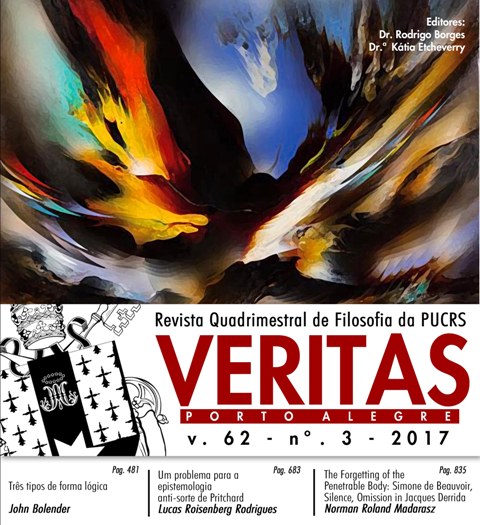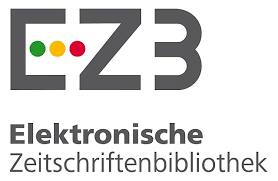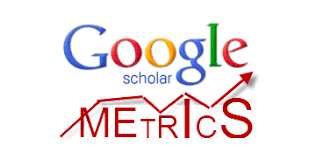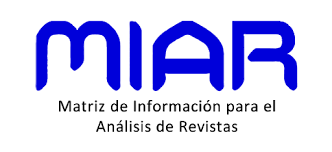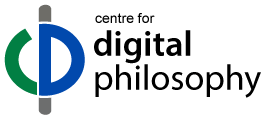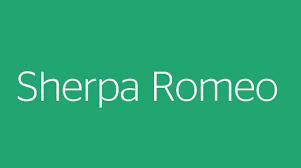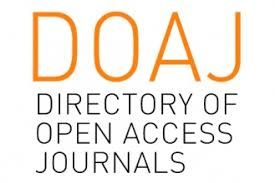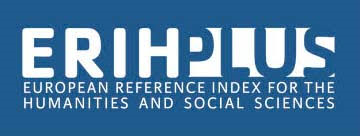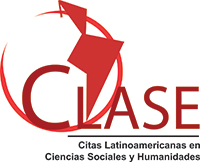Vícios intelectuais e as redes sociais: o acesso constante à informação nos torna intelectualmente viciosos?
DOI:
https://doi.org/10.15448/1984-6746.2017.3.28299Palavras-chave:
Epistemologia Social, Epistemologia dos Vícios, Epistemologia das Virtudes, Testemunho, Vícios IntelectuaisResumo
Muitos chamam a era em que atualmente vivemos como a Era da Informação. Isso porque vivemos em um mundo altamente conectado onde o fluxo de informação é constante. Uma das principais fontes de informação nos dias de hoje é a Internet, seja através de pesquisas no Google, seja através do testemunho de nossos amigos ou empresas em que confiamos, através das redes sociais. Este artigo visa realizar uma análise desde um ponto de vista da epistemologia social e de uma epistemologia dos vícios para se responder uma pergunta que vem sendo feita em diversas pesquisas de psicologia experimental: O uso da Internet nos torna intelectualmente viciosos? A conclusão a que chego é a de que sim, em determinados contextos, o uso da Internet nos torna intelectualmente viciosos. Para chegar a esta conclusão, analiso um experimento realizado em uma pesquisa de psicologia experimental que afirma que a Internet nos torna intelectualmente arrogantes e uma resposta desde um ponto de vista da epistemologia que defende que este uso pode promover talvez mais virtudes. Em seguida considero a arquitetura da internet dentro de um contexto informacional específico para poder chegar à conclusão de que a internet, em determinados contextos, nos torna sim intelectualmente viciosos.
Downloads
Referências
ADAMS, F. e KENNETH A. (2011). The Bounds of Cognition. Blackwell. DOI: https://doi.org/10.1002/9781444391718
BATTALY, H. (2014). ‘Varieties of Epistemic Vice’, in: Matheson, Jonathan e Vitz, Rico, eds., The Ethics of Belief: Individual and Social, Oxford: Oxford University Press, 51–76. DOI: https://doi.org/10.1093/acprof:oso/9780199686520.003.0004
BERNECKER, S. (2008) ‘Agent Reliabilism and the Problem of Clairvoyance’, Philosophy and Phenomenological Research, Vol. LXXVI, No. 1. DOI: https://doi.org/10.1111/j.1933-1592.2007.00120.x
BONJOUR, L. (1980) ‘Externalist Theories of Empirical Knowledge’, Midwest Studies in Philosophy, 5: 53–73. DOI: https://doi.org/10.1111/j.1475-4975.1980.tb00396.x
BREYER, D. e GRECO, J. (2008) ‘Cognitive Integration and the Ownership of Belief: Response to Bernecker’, Philosophy and Phenomenological Research, Vol. LXXVI, No. 1. DOI: https://doi.org/10.1111/j.1933-1592.2007.00121.x
CARTER, J. A. e GORDON, E. C. (2016). ‘Is searching the internet making us intellectually arrogant?’, unpublished manuscript, University of Edinburgh.
CASSAM, Q. (2016) ‘Vice Epistemology’. The Monist, 99:159-180. DOI: https://doi.org/10.1093/monist/onv034
CLARK, A. (2008). Supersizing the Mind: Embodiment, Action, and Cognitive Extension. Oxford University Press. DOI: https://doi.org/10.1093/acprof:oso/9780195333213.001.0001
________ (2010). ‘Memento’s Revenge : The Extended Mind Extended’. In: The Extended Mind, (Ed.) Menary, Richard, MIT Press.
CLARK, A., e CHALMERS, D. (1998). ‘The Extended Mind’, Analysis 58 (1): 7–19. DOI: https://doi.org/10.1093/analys/58.1.7
FALLIS, D. (2008) ‘Toward an Epistemology of Wikipedia’, Journal of the American Society for Information Science and Technology archive, Volume 59 (10): 1662-1674. DOI: https://doi.org/10.1002/asi.20870
FARKAS, K. (2016). ‘Know-Wh Does Not Reduce to Know That’. American Philosophical Quarterly, 53 (2): 109–122.
FISHER, M., GODDU, M. K. e KEIL, F. C. (2015). ‘Searching for Explanations: How the Internet Inflates Estimates of Internal Knowledge’, Journal of Experimental Psychology: General 144 (3): 674–687. DOI: https://doi.org/10.1037/xge0000070
GABIELKOV, M., RAMACHANDRAN, A., CHAINTREAU, A. e LEGOUT, A. (2016) ‘Social Clicks: What and Who Gets Read on Twitter?’. ACM SIGMETRICS / IFIP Performance 2016, Jun 2016, Antibes Juan-les-Pins, France. DOI: https://doi.org/10.1145/2896377.2901462
GOLDMAN, A. (1978). ‘Epistemics: The Regulative Theory of Cognition’, Journal of Philosophy 75:509–23. DOI: https://doi.org/10.2307/2025838
________ (1992) Liaisons: Philosophy Meets the Cognitive and Social Sciences, Cambridge, MA: The MIT Press.
GOLDMAN, A. e BLANCHARD, T. (2016). ‘Social Epistemology’, In: Zalta, Edward (Ed.). The Stanford Encyclopedia of Philosophy, URL =
<https://plato.stanford.edu/archives/win2016/entries/epistemology-social/>.
GRECO, J. (2010). Achieving Knowledge: A Virtue-theoretic Account of Epistemic Normativity. Cambridge: Cambridge University Press. DOI: https://doi.org/10.1017/CBO9780511844645
JAMIESON, K. e CAPPELLA, J. (2009). Echo chamber: Rush Limbaugh and the conservative media establishment. New York, NY: Oxford University Press.
KELP, C. (2013). ‘Extended Cognition and Robust Virtue Epistemology’. Erkenntnis 78 (2): 245–252. DOI: https://doi.org/10.1007/s10670-011-9301-3
KORIAT, A., e LEVY-SADOT, R. (2001). ‘The combined contributions of the cue-familiarity and accessibility heuristics to feelings of knowing’, Journal of Experimental Psychology: Learning, Memory, and Cognition, 27, 34–53. DOI: https://doi.org/10.1037/0278-7393.27.1.34
KRAMER, A.; GUILLORY, J. E. e HANCOCK, J. T. (2013). ‘Experimental evidence of massive-scale emotional contagion through social networks’, Proceedings of the National Academy of Sciences of the United States, vol. 111, n. 24, 8788-8790. DOI: https://doi.org/10.1073/pnas.1320040111
LYNCH, M. P. (2016). The Internet of Us: Knowing More and Understanding Less in the Age of Big Data, New York: Liveright.
MONTMARQUET, J. (1987). ‘Epistemic Virtue’, Mind 96: 482–97. DOI: https://doi.org/10.1093/mind/XCVI.384.482
PARISER, E. (2011). The Filter Bubble: What the internet is hiding from you, New York: The Penguin Press.
PRITCHARD, D. (2005). Epistemic Luck, Oxford: Oxford University Press. DOI: https://doi.org/10.1093/019928038X.001.0001
________ (2010). ‘Cognitive Ability and the Extended Cognition Thesis’. Synthese 175 (1): 133–151. DOI: https://doi.org/10.1007/s11229-010-9738-y
________ (2012). ‘Anti-Luck Virtue Epistemology’, Journal of Philosophy, 109: 247–79. DOI: https://doi.org/10.5840/jphil201210939
ROBERTS, R. C. e WOOD, W. J. (2007). Intellectual Virtues: An Essay in Regulative Epistemology, Oxford: Oxford University Press. DOI: https://doi.org/10.1093/acprof:oso/9780199283675.001.0001
RUPERT, R. D. (2004). ‘Challenges to the Hypothesis of Extended Cognition’. Journal of Philosophy, 101 (8): 389–428. DOI: https://doi.org/10.5840/jphil2004101826
SOSA, E. (2015) Judgment and Agency, Oxford: Oxford University Press. DOI: https://doi.org/10.1093/acprof:oso/9780198719694.001.0001
SPARROW, B., LIU J., e WEGNER, D. M. (2011). ‘Google Effects on Memory: Cognitive Consequences of Having Information at Our Fingertips’, Science 333 (6043): 776–778. DOI: https://doi.org/10.1126/science.1207745
SPREVAK, M. (2010). 'Inference to the Hypothesis of Extended Cognition', Studies in History and Philosophy of Science, Part A, vol 41, no. 4, 353-362. DOI: https://doi.org/10.1016/j.shpsa.2010.10.010
STROUD, N. J. (2011). Niche News: The Politics of News Choices. Oxford. Oxford University Press. DOI: https://doi.org/10.1093/acprof:oso/9780199755509.001.0001
TANESINI, A. (2016). ‘I—“Calm Down, Dear”: Intellectual Arrogance, Silencing and Ignorance’. Aristotelian Society Supplementary Volume 90 (1): 71–92. DOI: https://doi.org/10.1093/arisup/akw011
TIBERIUS, V., e WALKER, J. D. (1998). ‘Arrogance’. American Philosophical Quarterly 35 (4): 379–390.
WARD, A. F. (2013). ‘Supernormal: How the Internet Is Changing Our Memories and Our Minds’, Psychological Inquiry 24 (4): 341–348. DOI: https://doi.org/10.1080/1047840X.2013.850148
WEGNER, D. M. (1987). ‘Transactive memory: A contemporary analysis of the group mind’. In: Mullen, Brian e Goethals, George R. (Eds.), Theories of group behavior. New York, NY: Springer-Verlag. DOI: https://doi.org/10.1007/978-1-4612-4634-3_9
WHITCOMB, D.; BATTALY, H.; BAEHR, J. e SNYDER, D. H. (2015). ‘Intellectual Humility: Owning Our Limitations’. Philosophy and Phenomenological Research 91 (1). DOI: https://doi.org/10.1111/phpr.12228
WOOD, S. L. e LYNCH, J. G. (2002). ‘Prior knowledge and complacency in new product learning’, Journal of Consumer Research, 29: 416–426. DOI: https://doi.org/10.1086/344425
ZAGZEBSKI, L. (1996). Virtues of the Mind: An Inquiry into the Nature of Virtue and the Ethical Foundations of Knowledge, Cambridge: Cambridge University Press. DOI: https://doi.org/10.1017/CBO9781139174763
Downloads
Publicado
Como Citar
Edição
Seção
Licença
Direitos Autorais
A submissão de originais para a Revista Veritas implica na transferência, pelos autores, dos direitos de publicação. Os direitos autorais para os artigos publicados nesta revista são do autor, com direitos da revista sobre a primeira publicação. Os autores somente poderão utilizar os mesmos resultados em outras publicações indicando claramente a Revista Veritas como o meio da publicação original.
Licença Creative Commons
Exceto onde especificado diferentemente, aplicam-se à matéria publicada neste periódico os termos de uma licença Creative Commons Atribuição 4.0 Internacional, que permite o uso irrestrito, a distribuição e a reprodução em qualquer meio desde que a publicação original seja corretamente citada. Copyright: © 2006-2020 EDIPUCRS
